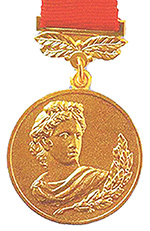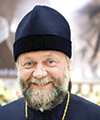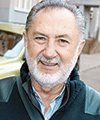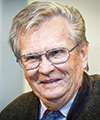Union State Day at Slavianski Bazaar in Vitebsk full of bright events
25th International Slavianski Bazaar Festival of Arts, in Vitebsk, is, this year, bigger than ever, with 130 cultural events and 5,500 participants from 44 countries. The Grand Prix of the International Pop Song Performers’ Contest, Vitebsk-2016, has been won by Belarusian Alex Gross, while Russian Anastasia Gladilina won the Children’s Musical Competition — also receiving the Grand Prix. The First Award went to Belarusian Anastasia Zhabko, and all were awarded special prizes from the Parliamentary Assembly of the Belarus-Russia Union State.

Union State Day was among the brightest and most memorable at the Slavianski Bazaar, held on July 15th. The holiday opened with laying of flowers at the Pobedy Square memorial, in Vitebsk. Later, the Secretary of State of the Union State, Grigory Rapota, met the Chairman of Vitebsk Regional Executive Committee, Nikolay Sherstnev. The latter noted that Russia is a key strategic partner for the Belarusian Dvina Region, saying, “Our states have no borders, which defines our relationships. Seventy percent of all exports go to Russia. We are seriously considering a programme of economic co-operation for at least the coming five years, taking into account the transition to major industrial and agricultural projects.”
Mr. Rapota says that issues of regional co-operation and prospects for more active participation of Russian businesses have been debated. “I’m glad we’ve had the opportunity to visit certain enterprises, such as Vitebsk’s Display Design Bureau. It’s actively liaising with Russian scientists and sells its high-tech produce mostly to Russia. We’ve also focused on engineering issues. We share a common theme of flax. Belarusian-Russian co-operation in this respect is truly extensive, as it is for agriculture. At the moment, Russians buy much food from the Belarusian border region but we need to shift from simple purchases to long-term projects,” he notes.
Conversation on the topic continued during Mr. Rapota’s traditional press conference. He believes that co-ordination of the economic policies of Belarus and Russia is vital to our bilateral co-operation. “We need to create an economic basis, enabling us to develop our cultural ties more extensively. Cultural projects can be funded from an economic basis, so we need to pay attention to eliminating gaps in economic relations, which have emerged in recent years,” he explains.
Charitable activities are traditionally organised as part of the Slavianski Bazaar. This year, Mr. Rapota visited Velikoletchansky Orphanage, in the village of Bolshiye Letsy (Vitebsk Region). He saw how its 116 children live, and attended concerts they had prepared. He presented a computer class to the children, in addition to a laptop and an interactive whiteboard. “We’ve managed to find sponsors, who’ve helped us purchase and install the equipment. The equipment will be put to good use, as we know that the younger generation must keep up with the times,” Mr. Rapota declared.
Vera Duk, the orphanage’s director, says that her establishment was founded after World War II and now comprises ten family groups. Its original teaching methods include working in the garden, arts and mini-football tournaments (between orphanages), going to Moscow and St. Petersburg. “Our dream was to update our computer class so we’re happy this has been realised. Our sportsmen also dream of gaining an artificial football pitch,” Ms. Duk told Mr. Rapota, who made note.

Mr. Rapota then visited Ilya Repin’s Zdravnevo Museum-Estate. In recent years, it has transformed into a unique educational and artistic centre. The Union State donated a collection of reproduction paintings by Repin and Peredvizhnik to the museum, which has attracted foreign visitors keen to learn more about the great artist.
The extended museum collection needs more space and is ready to construct a new exhibition hall next door. Mr. Rapota presented the project during his visit, also discussing the possibility of its realisation with Belarusian and Russian culture ministers Vladimir Medinsky and Boris Svetlov. In Zdravnevo, the Secretary of State also met participants and organisers of the 4th Belarusian-Russian open-air workshop for young artists. Boys and girls demonstrated pictures painted in the festival city and later received diplomas and presents. Moreover, young people, their teachers and guests of honour made a flower bed near the museum’s porch, in the form of a palette. To honour the Festival’s 25th jubilee, a corresponding 25 flowering rose bushes were planted.
In the evening, the Summer Amphitheater hosted the ‘Union State Invites’ concert, featuring the Academic Song and Dance Ensemble of the Russian Army (named after A. Aleksandrov), Larisa Dolina, Nadezhda Babkina, Syabry Ensemble, Nikolay Skorikov and other famous performers.
Mr. Rapota awarded special diplomas from the Standing Committee of the Union State ‘For Artistic Implementation of Ideas of Friendship Between Belarusian and Russian People’ to singers Olga Korkukhina and Ruslan Alekhno, to the Academic Song and Dance Ensemble of the Russian Army, and to the Director of the International Slavianski Bazaar Festival of Arts, Alexander Sidorenko. While congratulating nominees, the Secretary of State pointed out that if people have fun and relax together, then they are really happy to see each other. “In Vitebsk, heads of the country, the region and residents do everything possible for guests to enjoy themselves and feel at home,” he noted.
Best of the best
 During the opening of the 25th International Festival of Arts, President Alexander Lukashenko presented the Union State Award for Literature and Art for 2015-2016. Among its holders are the Artistic Director and Chief Conductor of the Bolshoi Symphony Orchestra (named after P. Tchaikovsky), Vladimir Fedoseev, for his ‘Songs from the War Years’ project. Awarded also were the Head of Minsk All Saints parish, Fyodor Povny, sculptor Vladimir Slobodchikov and architect Igor Morozov, for creating a sculpture of His Holiness Patriarch Alexy II, in the Belarusian capital. The second team awarded was the Artistic Director of Syabry Ensemble, Anatoly Yarmolenko, composer Oleh Yeliseenkov and poet Ivan Yurkin, for their ‘Where the Viburnum Blooms’ musical album.
During the opening of the 25th International Festival of Arts, President Alexander Lukashenko presented the Union State Award for Literature and Art for 2015-2016. Among its holders are the Artistic Director and Chief Conductor of the Bolshoi Symphony Orchestra (named after P. Tchaikovsky), Vladimir Fedoseev, for his ‘Songs from the War Years’ project. Awarded also were the Head of Minsk All Saints parish, Fyodor Povny, sculptor Vladimir Slobodchikov and architect Igor Morozov, for creating a sculpture of His Holiness Patriarch Alexy II, in the Belarusian capital. The second team awarded was the Artistic Director of Syabry Ensemble, Anatoly Yarmolenko, composer Oleh Yeliseenkov and poet Ivan Yurkin, for their ‘Where the Viburnum Blooms’ musical album.
Fyodor Povny, the Head of Minsk All Saints parish, tells us,
 “We wanted to depict Patriarch Alexy II to appear modern and interesting, showing his character, inner world and outlook. Thanks be to God, we’ve succeeded. Several people were involved and it’s important that they’ve received high praise within the Union State. New generations grow up and sometimes fail to realise how our relations — built for centuries — are being dissolved. It’s vital to find a common ground of shared values for Russians and Belarusians, since this shapes us. We have no prospects without understanding our internal Union relations. Some share of the money received as part of the award will be invested into reconstruction of St. Sophia’s Cathedral in Vitebsk. As regards the Slavianski Bazaar, there is no better peace-making venue, in my opinion — even outside the CIS. Importantly, it boasts real traditions, which — I’m convinced — will last well beyond 25 years.”
“We wanted to depict Patriarch Alexy II to appear modern and interesting, showing his character, inner world and outlook. Thanks be to God, we’ve succeeded. Several people were involved and it’s important that they’ve received high praise within the Union State. New generations grow up and sometimes fail to realise how our relations — built for centuries — are being dissolved. It’s vital to find a common ground of shared values for Russians and Belarusians, since this shapes us. We have no prospects without understanding our internal Union relations. Some share of the money received as part of the award will be invested into reconstruction of St. Sophia’s Cathedral in Vitebsk. As regards the Slavianski Bazaar, there is no better peace-making venue, in my opinion — even outside the CIS. Importantly, it boasts real traditions, which — I’m convinced — will last well beyond 25 years.”
Anatoly Yarmolenko, Syabry’s Artistic Director, adds,
 “The award confirms that we’re moving in the right direction in promoting friendly relations with Russia. This might sound pompous but I believe we shouldn’t be afraid to say that people who sing songs are reluctant to go to war. Our ‘Where the Viburnum Blooms’ album is the key component of our concert programme touring China, Mongolia, Ukraine, the USA and Russia. In September, we’ll play in Moscow; all tickets are sold out already. Great interest is shown in our songs, since they deal with everything dear to everyone: home life in our beloved corner of the world, where we are born and grow up. We, musicians, consider the album to be a success if even just one song becomes popular. Meanwhile, virtually all the songs on our album are hits: ‘My Village’ is a song about motherhood, while ‘Come to Our Belarus’ is a calling card not only for Syabry but for Belarus in general. We’re happy to hear our fans all over the globe singing it in Belarus, jointly with us.”
“The award confirms that we’re moving in the right direction in promoting friendly relations with Russia. This might sound pompous but I believe we shouldn’t be afraid to say that people who sing songs are reluctant to go to war. Our ‘Where the Viburnum Blooms’ album is the key component of our concert programme touring China, Mongolia, Ukraine, the USA and Russia. In September, we’ll play in Moscow; all tickets are sold out already. Great interest is shown in our songs, since they deal with everything dear to everyone: home life in our beloved corner of the world, where we are born and grow up. We, musicians, consider the album to be a success if even just one song becomes popular. Meanwhile, virtually all the songs on our album are hits: ‘My Village’ is a song about motherhood, while ‘Come to Our Belarus’ is a calling card not only for Syabry but for Belarus in general. We’re happy to hear our fans all over the globe singing it in Belarus, jointly with us.”
Vladimir Fedoseyev, the Artistic Director and Chief Conductor of the Bolshoi Symphony Orchestra (named after P. Tchaikovsky), comments,
 “The ‘Songs of the War Years’ project has stirred so many wonderful feelings among performers and audiences. When we sang ‘Arise, Great Country!’, ‘Bryansk Forest Makes Noise’, ‘Tachanka’, ‘In a Sunny Field’, and ‘Soldiers are Coming to Minsk’, at Moscow’s Green Theatre and at other concert halls, audiences joined us in singing. I noticed that many people — including young people — had tears in their eyes. The elderly remember the emotions inspired by the war, which we sometimes forget. Music revives those feelings, strengthening our souls in this ever-changing world. Unfortunately, it’s not always changing for the best. The Union State Award is the result of a great job, by my orchestra and my own self. Artistes need such gratitude, as it reflects the feelings of audiences. After all, we work primarily for the people.”
“The ‘Songs of the War Years’ project has stirred so many wonderful feelings among performers and audiences. When we sang ‘Arise, Great Country!’, ‘Bryansk Forest Makes Noise’, ‘Tachanka’, ‘In a Sunny Field’, and ‘Soldiers are Coming to Minsk’, at Moscow’s Green Theatre and at other concert halls, audiences joined us in singing. I noticed that many people — including young people — had tears in their eyes. The elderly remember the emotions inspired by the war, which we sometimes forget. Music revives those feelings, strengthening our souls in this ever-changing world. Unfortunately, it’s not always changing for the best. The Union State Award is the result of a great job, by my orchestra and my own self. Artistes need such gratitude, as it reflects the feelings of audiences. After all, we work primarily for the people.”
By Sergey Golesnik











